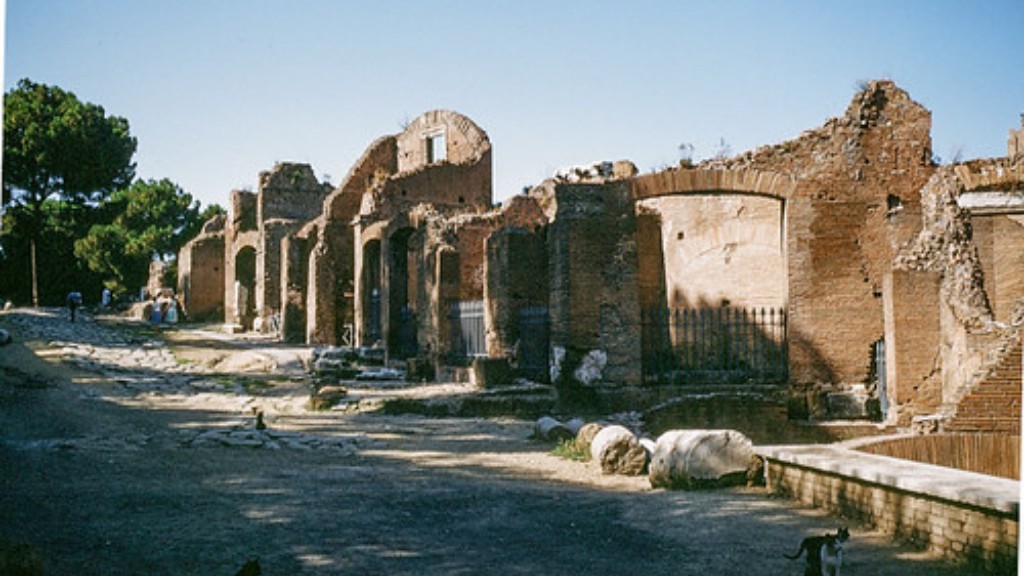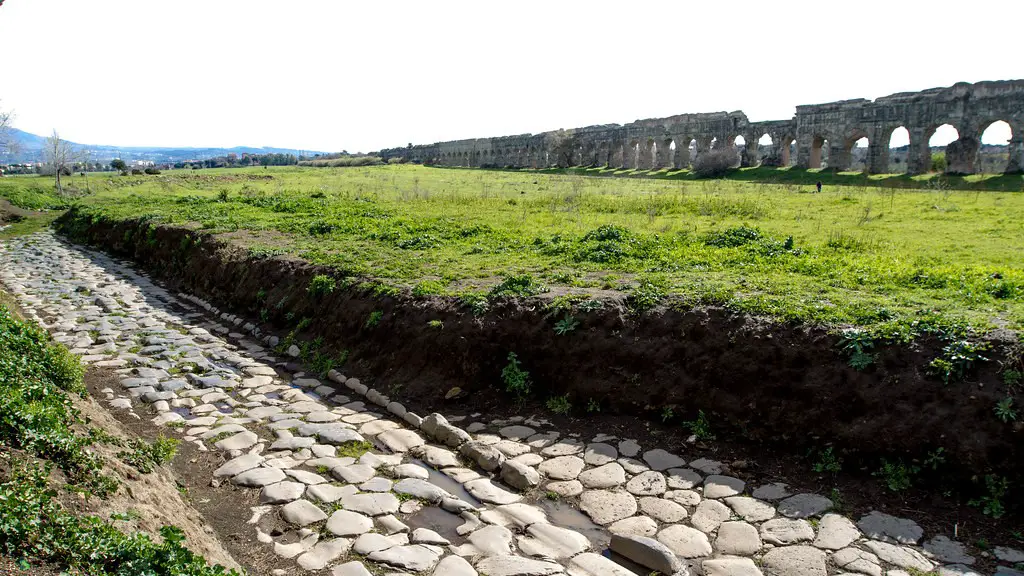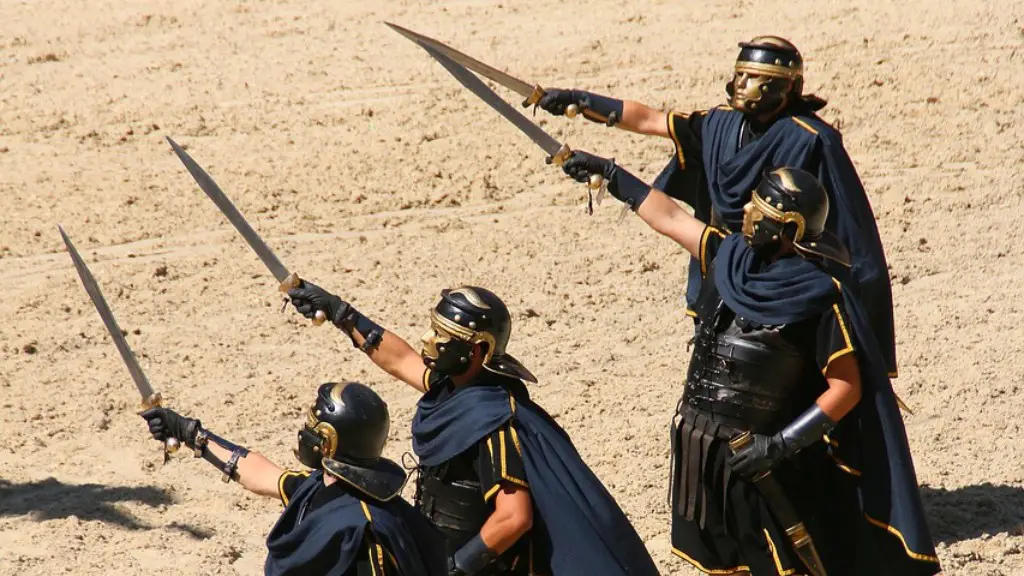The Ancient Roman civilization is known for its governance and legal system. Roman laws were deeply intertwined with their religious beliefs and principles, which were originally developed as part of their highly structured system of government. This ancient civilization gave rise to numerous laws that were in place for centuries and were essential for the functioning of their society.
The laws of Ancient Rome were divided into two major types. The first type was the civil law, which were largely concerned with matters of property rights and inheritance, divorce, and contracts. The second type was criminal law, which focused on the punishment of wrongdoing. These laws were enforced by the Senate, magistrates and public officials like consuls.
The Twelve Tables, which were enacted in the 5th century BC, is usually considered to be the cornerstone of the Roman legal system. It was composed of ten tables of law, with each table containing a list of punishments, penalties and fines. For example, the table of homicide stated that a thief should receive the death penalty while the table of dowry and inheritances stated the rules of division of property.
Another important concept in early Roman law was the concept of ‘natural law’. This was a concept that stated that all persons should be subject to the same universal laws of nature, regardless of their social standing or class. This ideology extended beyond Roman law and was part of the basis for later philosophical and legal concepts such as the rule of law, the separation of powers, and natural rights.
The Romans also had complex rules of procedure in their legal system. This included a system of trials, the rules of evidence and the question of jurisdiction of different courts. This was all part of the Roman ‘concept of fair and just trials’, which was a unique way of dealing with legal matters in the ancient world.
The Romans also had some unique laws that governed the personal lives of citizens. For example, ancient Roman marriage laws were very different from ours today. Under Roman law, a man was not permitted to have more than one wife. On the other hand, a wife was not allowed to divorce her husband and had to remain loyal to him. This was a concept that has since been rejected in modern times.
The Romans also had a highly detailed system of taxation, with different taxes being imposed on land, transactions and other aspects of daily life. It was the government’s way of gathering revenue to finance the growing needs of the empire. In addition, the Romans had laws in place to protect the rights of citizens and punish those who committed crimes.
Family law
Family law in Ancient Rome was also quite unique. Roman law allowed for a father to have the power to make decisions about marriage for his children, and for sons to be responsible for their parents’ support in old age. In addition, a man was allowed to divorce his wife on the grounds of adultery and other offenses. Women, however, were not allowed to divorce their husband.
The ability of fathers to manage their family’s possessions was known as ‘patria potestas’. Under this concept, a father had the power to control his family’s property and also to sell or give away items as he saw fit. This was also considered to be one of the primary sources of income for Ancient Roman families.
The concept of adoption was also important to Ancient Roman law. An adopted child was regarded as the same as a biological child, and as such was given the same rights and obligations as a natural-born child.
Enforcement of law
Enforcing the laws was an important part of what made the Roman legal system work. The government had a number of ways in which it could punish those who had broken the law. In addition to the usual fines, punishments or executions, the government could also send people into exile or take away their rights as citizens.
Roman law was also concerned with cooperation and public order. Therefore, punishments were handed out to those who refused to participate in public liturgies or military campaigns. In addition, harsh punishments were also handed out to those who broke the government’s rules, such as smuggling goods or laundering money.
Criminal Justice
The Roman legal system also included a range of criminal justice institutions. The courts were responsible for making sure that people followed the laws, and for punishing those who had broken them. The courts also acted as mediators between private citizens and the government, and were often used to resolve disputes.
The courts were run by magistrates, who had the power to make decisions about cases and pass sentences. These magistrates were appointed by the Senate, and all cases had to be heard by the Senate before a final decision could be made.
The Roman legal system also had its own system of prisons and jails, which were used to hold those who had been convicted of serious crimes. Punishments that could be handed out included death, imprisonment, flogging or even banishment from Rome. These punishments were not only used as a way of punishing offenders but also as a way of deterring others from committing crimes.
Influence on modern law
It is clear to see that Ancient Roman law had a deep and lasting influence on modern law. Many of the concepts that we take for granted today, such as natural law, the separation of powers, and due process, originate from the Roman legal system. In addition, Roman law is still used in many countries today, and its influence can be seen in the legal systems of nations all over the world.
Ancient Rome’s legal system was a sophisticated one, and it is still studied and admired today. It was a complex system, but one that had the power to protect its citizens and ensure that justice was fairly and justly administered. The legacy of Ancient Roman law is still alive and well in the modern day, and its influence is still felt in our legal systems.
Legacy of Roman Laws
The legacy of the Ancient Roman legal system is one that has had a lasting impact on modern law and justice. Many of the concepts and principles of the Roman legal system are still used and respected in many countries today. The Roman legal system was the foundation of the Western legal tradition, and its influence can be found in many aspects of modern life. This is just one example of the lasting legacy left behind by this great civilization.
Ancient Rome is also remembered for its vast cultural contributions. The artwork, literature and architecture of Ancient Rome were all deeply intertwined with its legal system. Even today, people still admire the beauty and complexity of the Roman legal system and its impact on modern society.
Conclusion
The laws of Ancient Rome were among the most influential of all time and have had a lasting impact on society today. Whether it’s the concept of natural law, the importance of due process, or the unique system of taxation and property rights, the influence of Roman law can still be seen in many aspects of modern life. The legacy of this great civilization and its legal system continues to remain relevant in our lives today.





